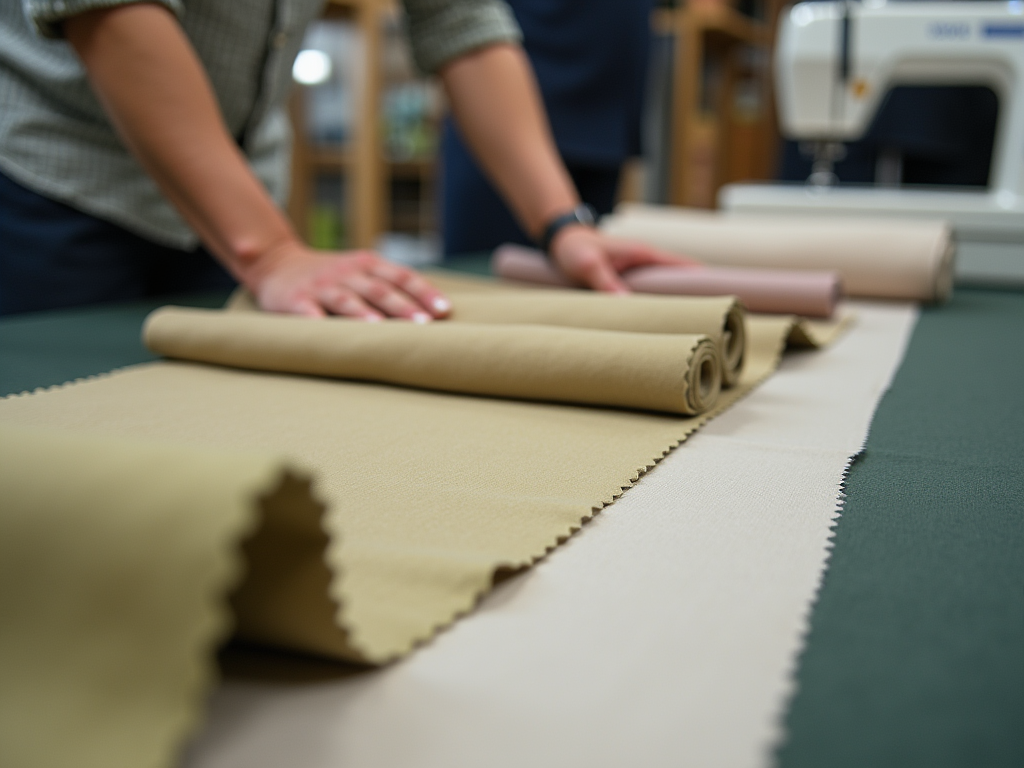How To Start a Textile Business in Dubai?

Starting a textile business in Dubai offers numerous opportunities due to its strategic location, vibrant economy, and demand for quality textiles. This bustling metropolis serves as a hub for international trade, making it an ideal spot for entering the textile sector. Whether you’re interested in manufacturing, wholesale, or retail, the process involves several essential steps that can lead you to success. This article will guide you through the fundamental aspects of establishing a textile business in Dubai.
Understanding the Market

Before diving into the textile business, it is essential to conduct thorough market research to understand the local and international demands. Dubai’s textile market is diverse, catering to a variety of consumers ranging from luxury fashion brands to bulk buyers and wholesalers. This understanding will help you identify specific niches within the market where your business can thrive. Consider the following factors:
- Consumer preferences and trends in textiles.
- Competitive landscape and major players in the industry.
- Potential target audiences and demographics.
- Seasonality of products and market fluctuations.
Gather insights through surveys, industry reports, and networking with local businesses. This foundational knowledge will shape your business model and marketing strategy.
Business Structure and Registration

Choosing the right business structure is crucial for a textile venture in Dubai. You can opt for a sole proprietorship, partnership, or a limited liability company (LLC) based on your needs. The next step involves registering your business with the Department of Economic Development (DED) and obtaining the necessary licenses. Here are the steps to follow:
- Determine your business structure and name.
- Gather required documents, including a business plan and identification.
- Submit your application to the DED.
- Obtain your trade license and register with relevant authorities.
Registration is a legally required step that will give your business a legitimate footing in Dubai’s competitive market. Ensuring compliance with local laws also protects your enterprise from potential legal issues down the line.
The location of your textile business is pivotal in reaching your target market effectively. Dubai offers a variety of commercial spaces, including showrooms, warehouses, and manufacturing units. Consider factors such as accessibility, proximity to suppliers and customers, and rental costs. You may find popular areas like:
- Al Quoz – Ideal for warehouses and manufacturing.
- Deira – Known for its bustling markets.
- Dubai Textile City – Focused explicitly on the textile trade.
Once you identify the right location, set up your operations to align with your business model, ensuring efficient production and distribution processes. The choice of location will have long-lasting effects on your logistics and customer service capabilities.
Sourcing and Production
In the textile industry, the quality of materials can significantly impact the final product and your brand’s reputation. Establish relationships with reliable suppliers who can provide high-quality fabrics, accessories, and machinery. Research and visit different manufacturers, both locally and internationally, to cultivate these connections. Additionally, consider these elements:
- Quality assurance processes for fabrics and finished products.
- Cost management strategies without compromising quality.
- Environmental considerations, including sustainability practices.
Effective sourcing and production planning are vital to maintaining a steady supply chain and meeting consumer demand promptly. Invest in quality and innovation to stand out in a crowded market.
Marketing and Promotion
After setting up your textile business, the next step is to attract customers through targeted marketing efforts. Utilize both online and offline strategies to create brand awareness. Consider the following marketing tactics:
- Develop a strong online presence with a professional website and active social media channels.
- Engage in trade shows and exhibitions to showcase your products.
- Network with fashion designers and retailers in Dubai.
- Implement loyalty programs and offer discounts to sustain customer interest.
A well-executed marketing strategy will position your textile enterprise as a reliable and innovative player in the Dubai market, expanding your customer base and fostering long-term growth.
Conclusion
Starting a textile business in Dubai requires careful planning, thorough market research, and strategic decision-making. By understanding the market dynamics, establishing a robust business structure, choosing the right location, ensuring quality sourcing, and implementing effective marketing strategies, you can carve out a successful niche in this thriving industry. Dubai presents vast opportunities for those willing to invest time and resources in their ventures, making it an attractive destination for entrepreneurs in the textile sector.
Frequently Asked Questions
1. What is the initial investment required to start a textile business in Dubai?
The initial investment can vary significantly based on the scale of your business, location, and type of textiles. It typically ranges from AED 50,000 to AED 200,000.
2. Do I need a local partner to start a textile business in Dubai?
If you are setting up in a free zone, you can wholly own your business without a local partner. However, for onshore companies, a local partner is required to hold 51% of the shares.
3. Can I sell products online in Dubai?
Yes, e-commerce is rapidly growing in Dubai. Ensure you comply with local regulations, and obtain the necessary licenses to sell online.
4. What are the popular textile trade shows in Dubai?
Some well-known textile trade shows include the Dubai Textile Expo and the Arab Fashion Week, which provide excellent platforms for networking and business promotion.
5. How can I ensure the quality of my textile products?
Implement quality control systems, establish strong relationships with trusted suppliers, and continuously test products during the manufacturing process to ensure quality compliance.